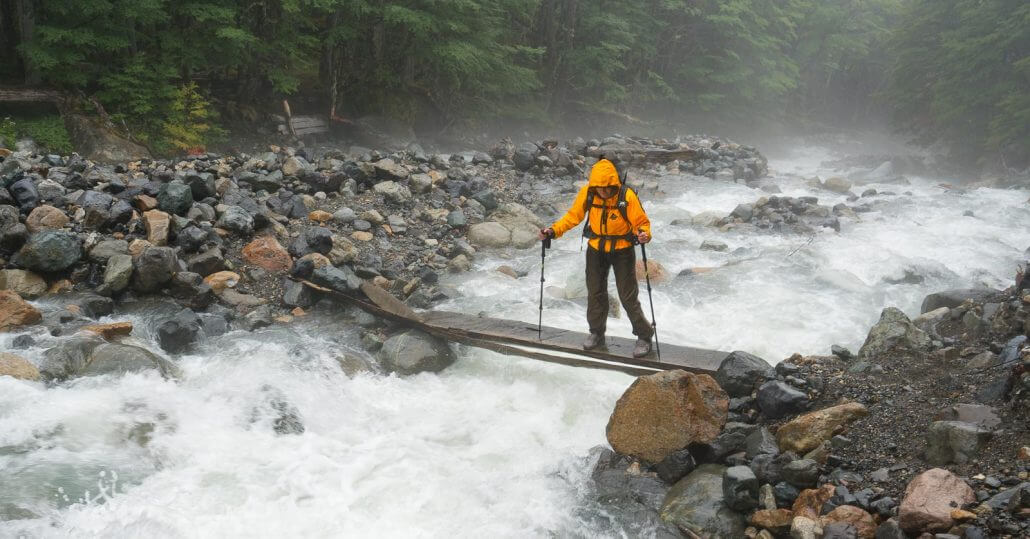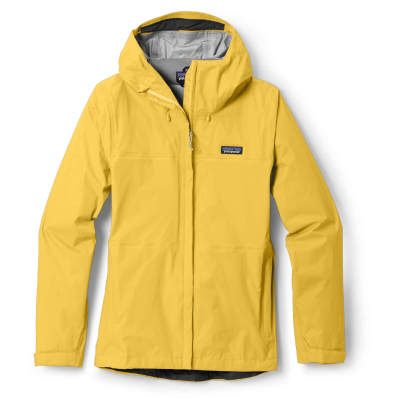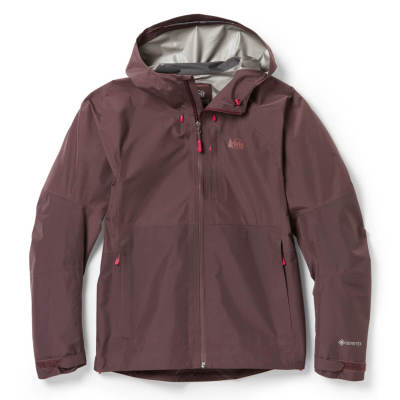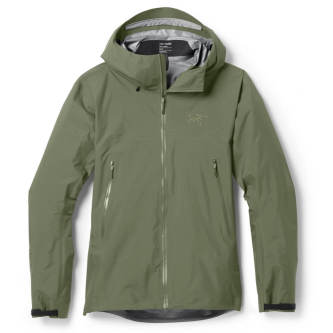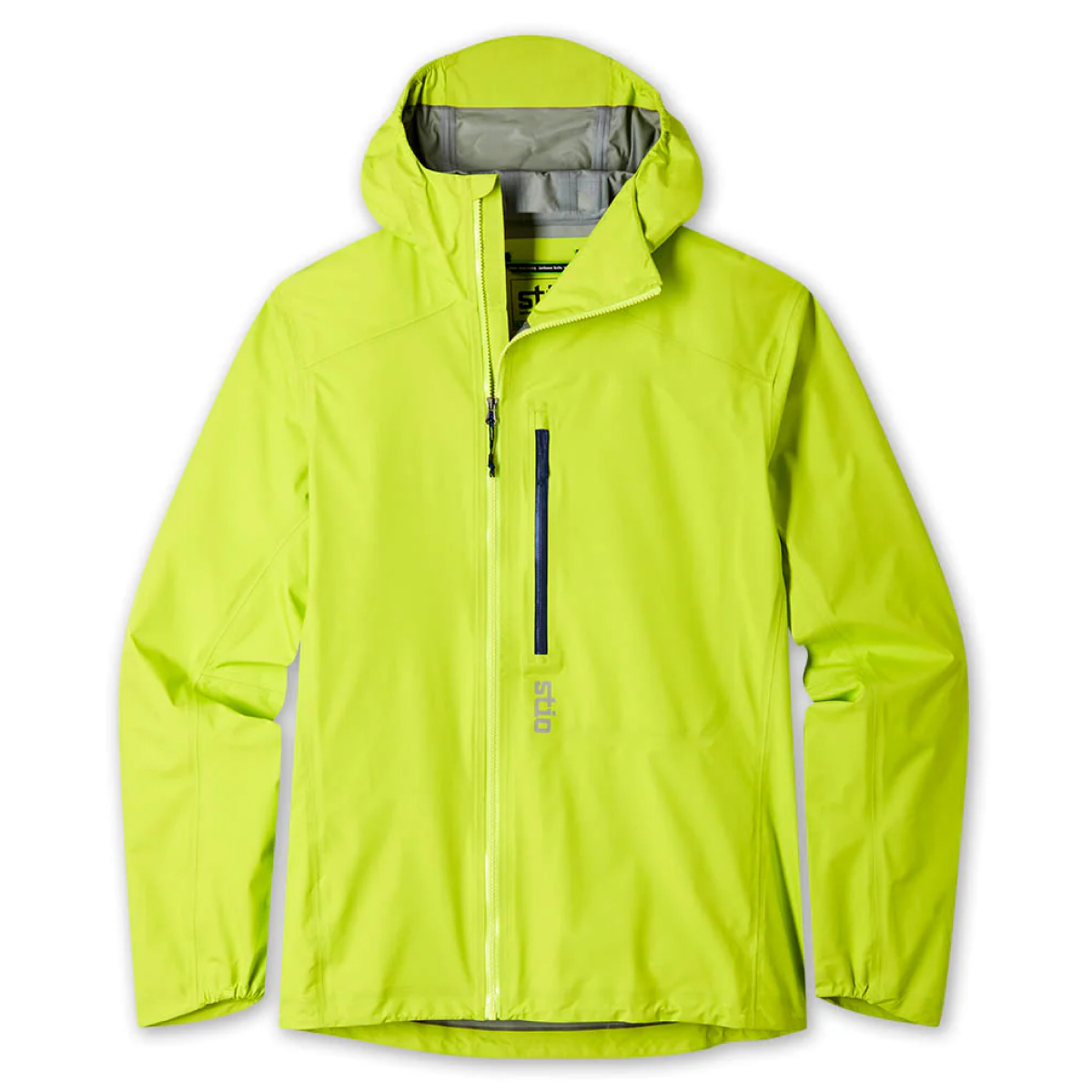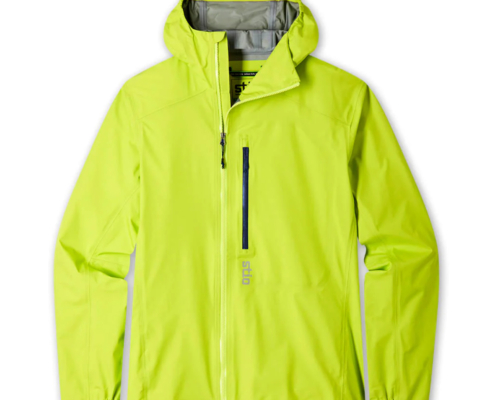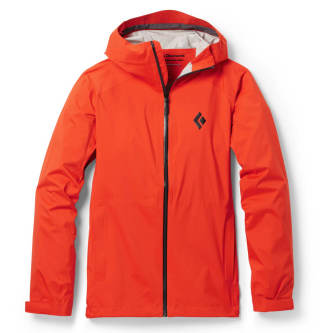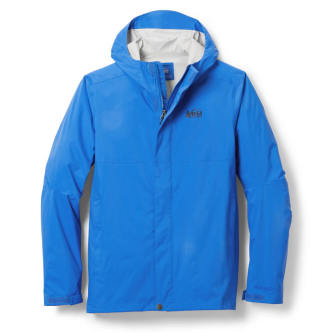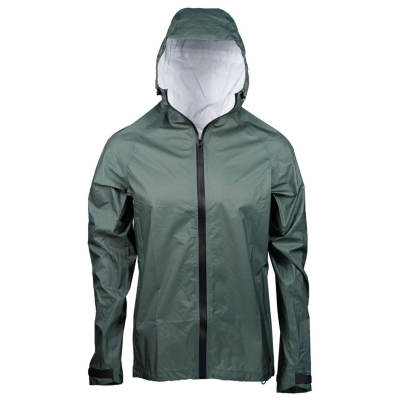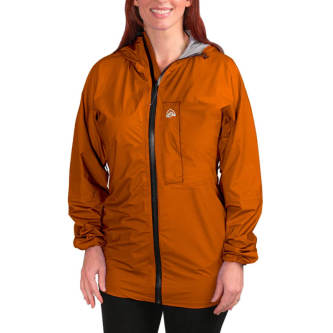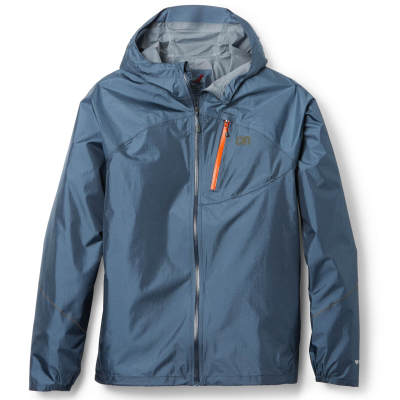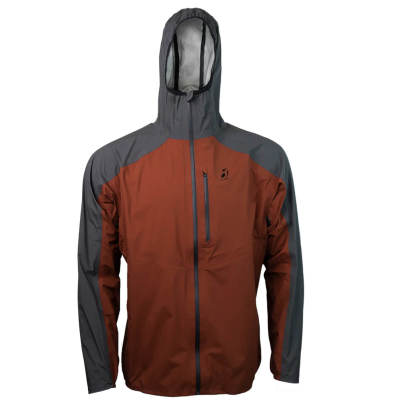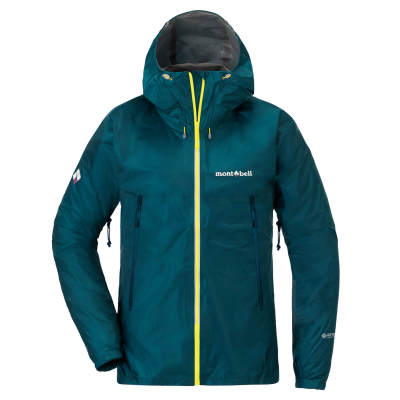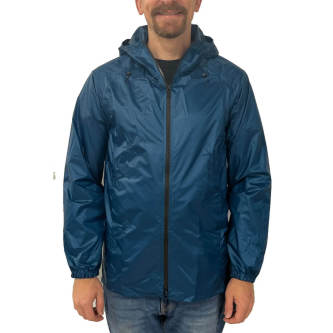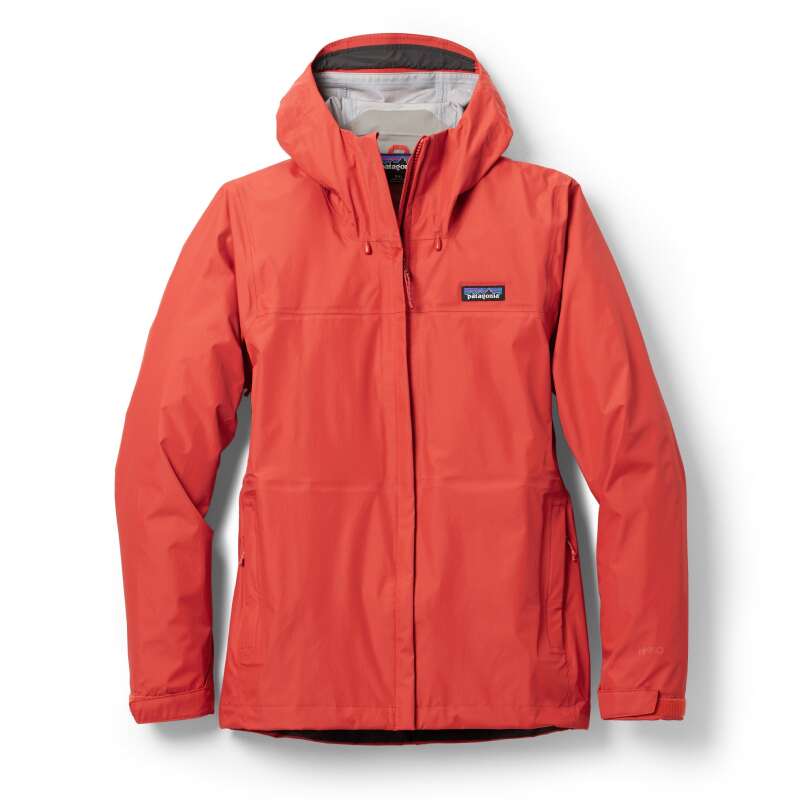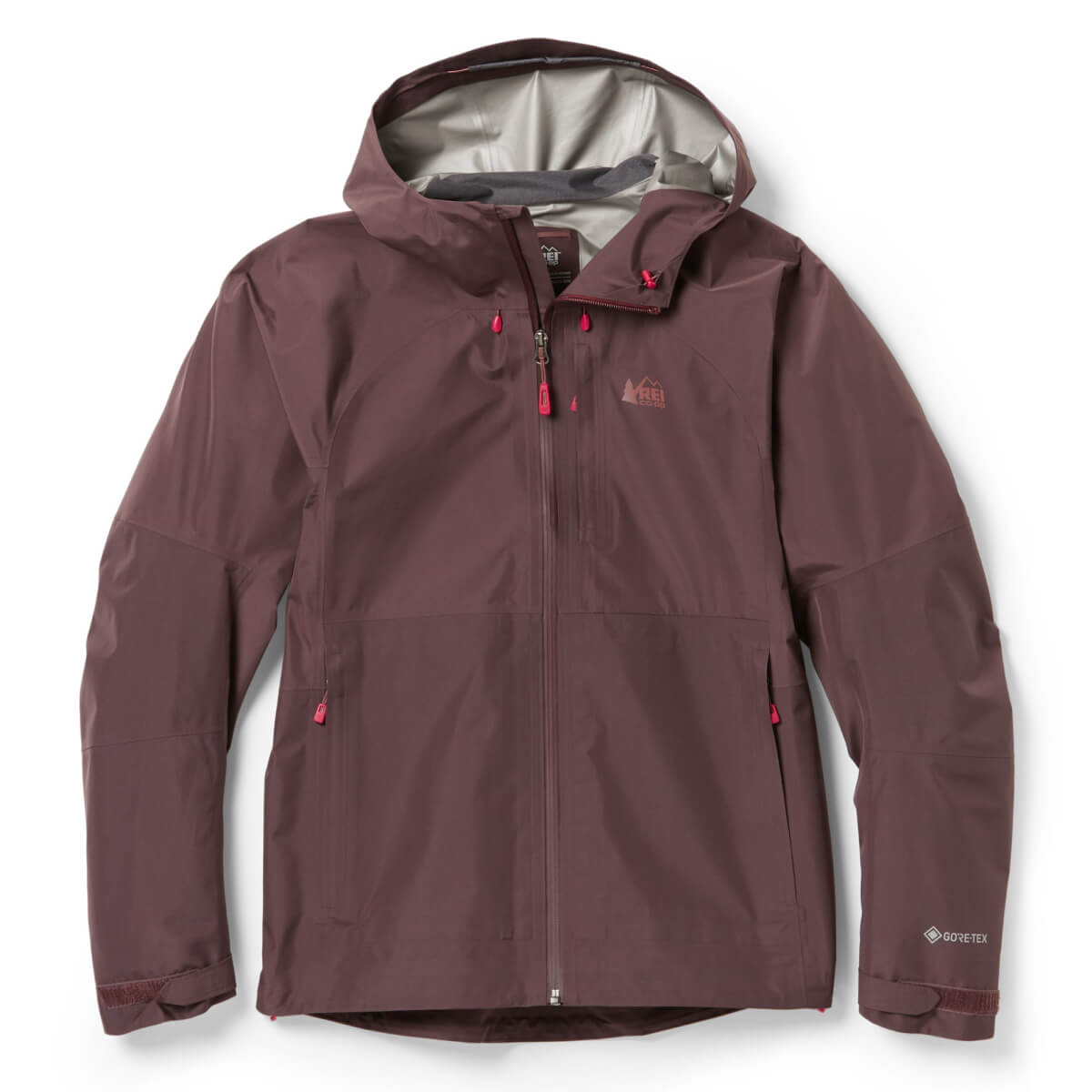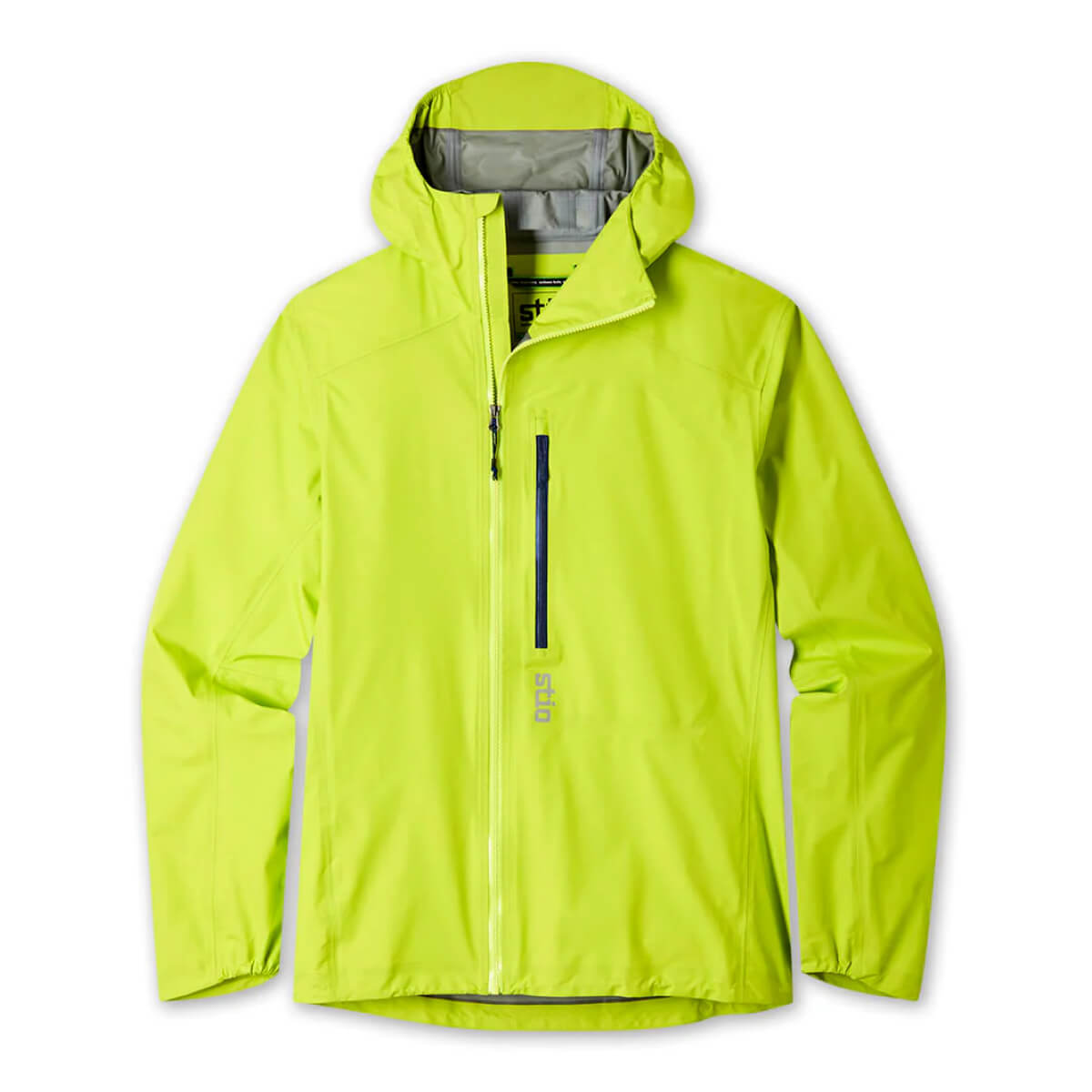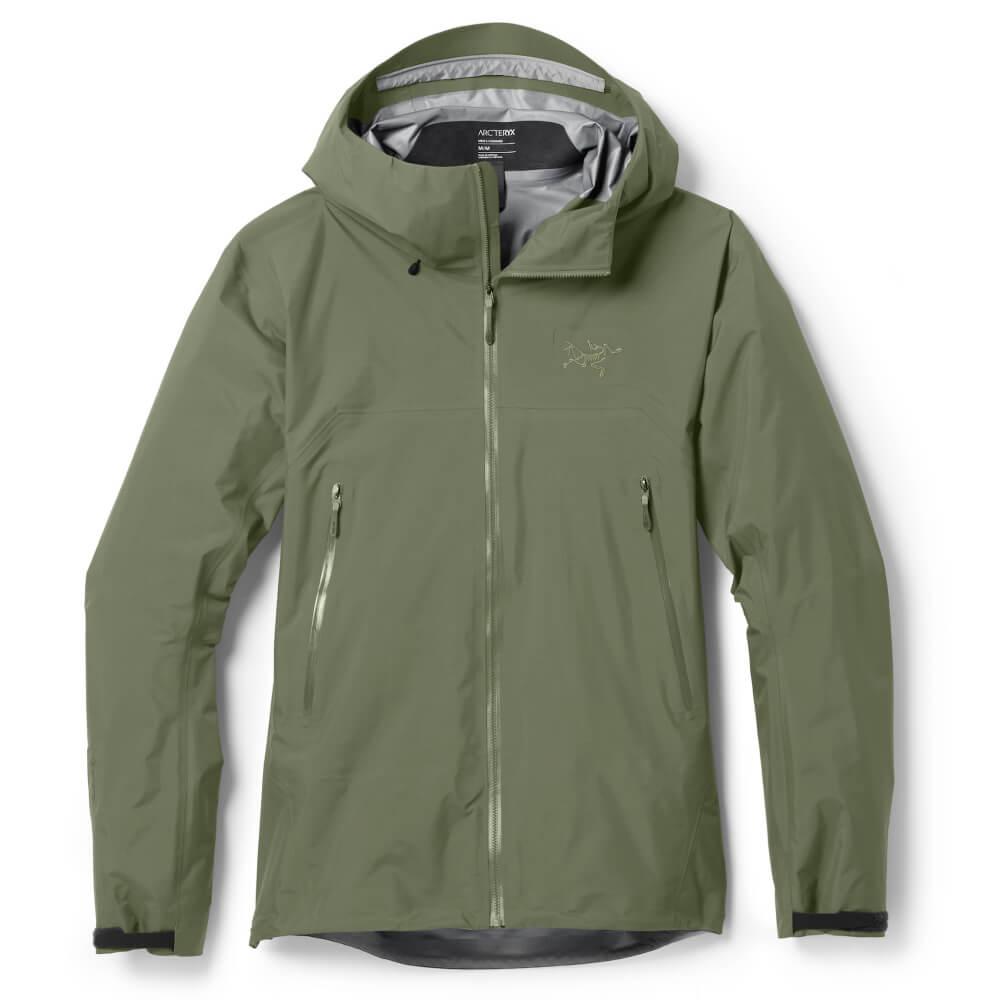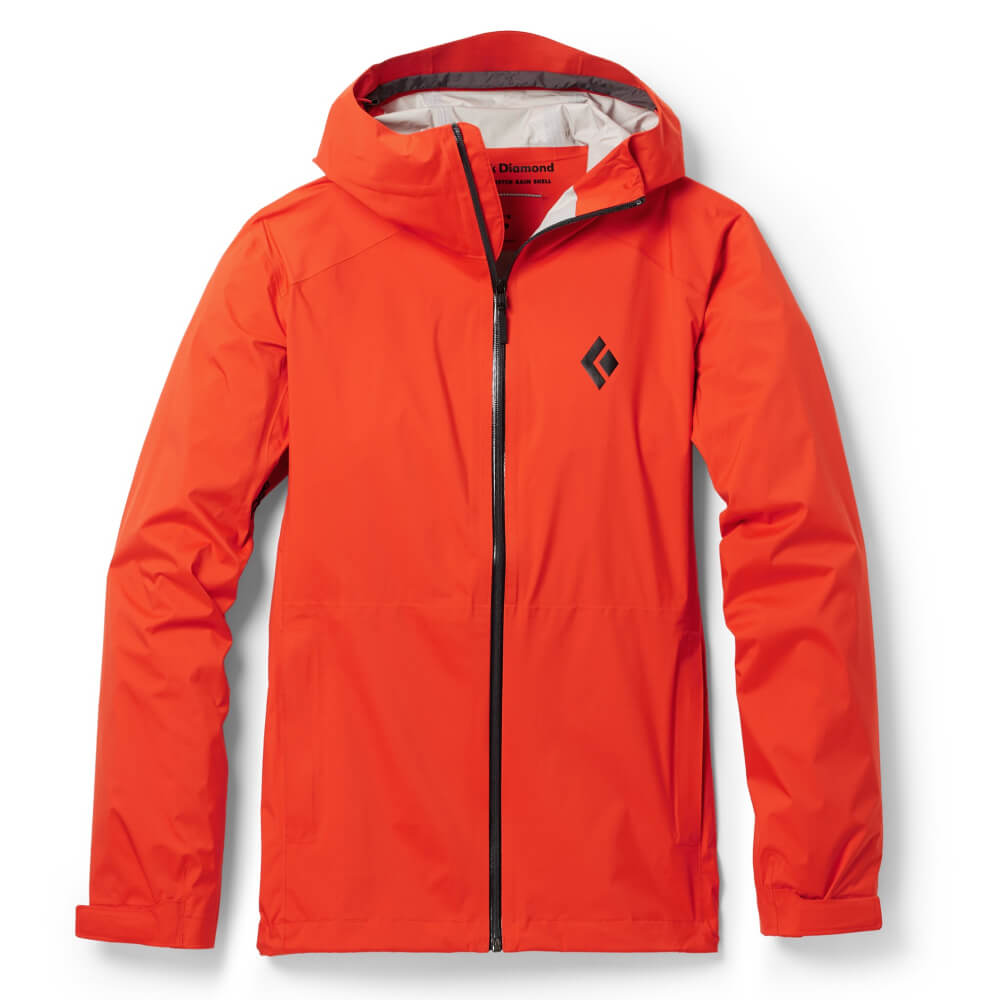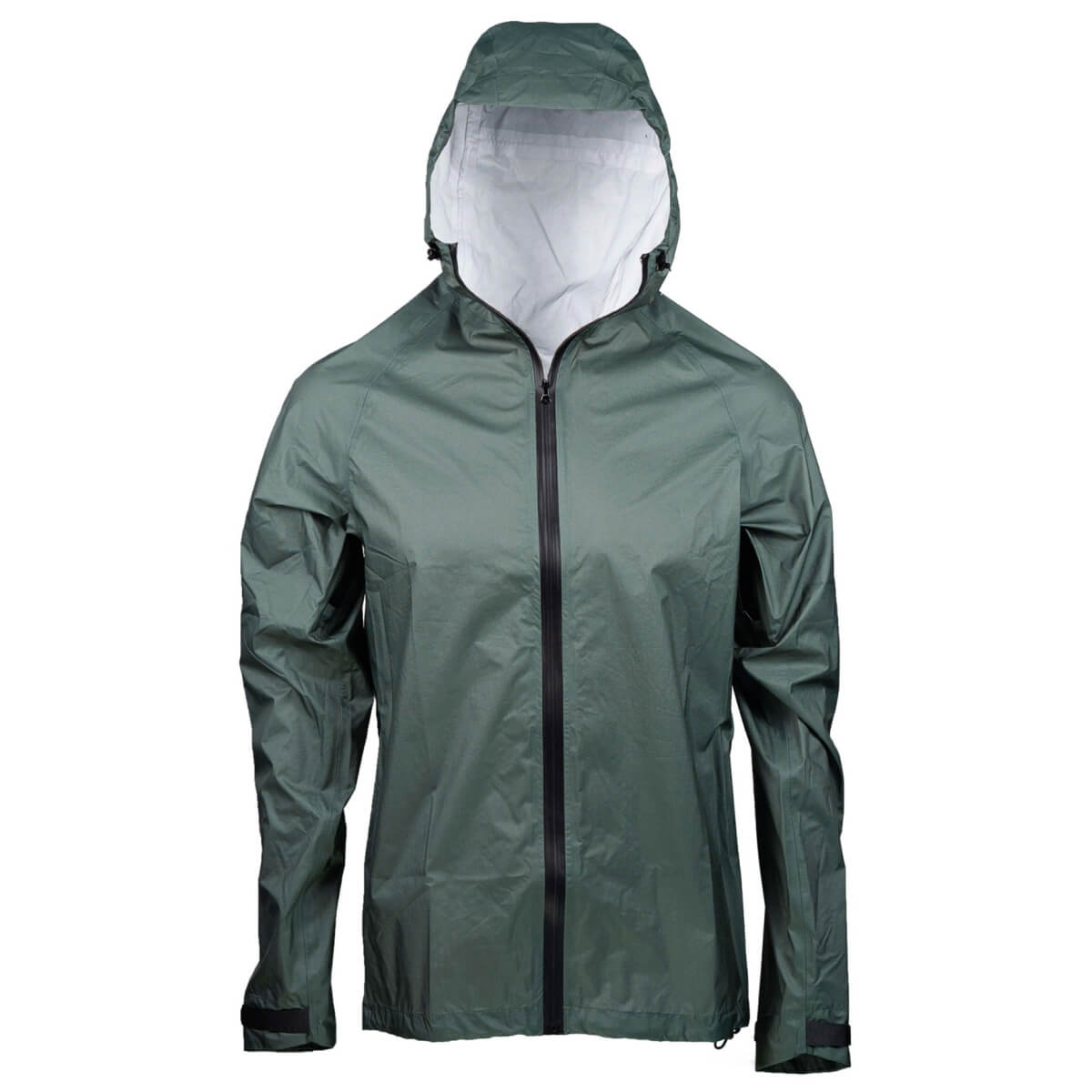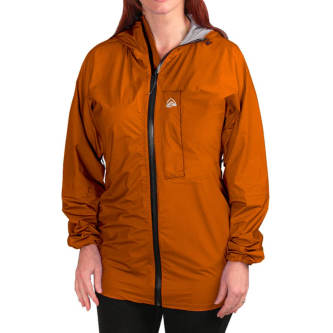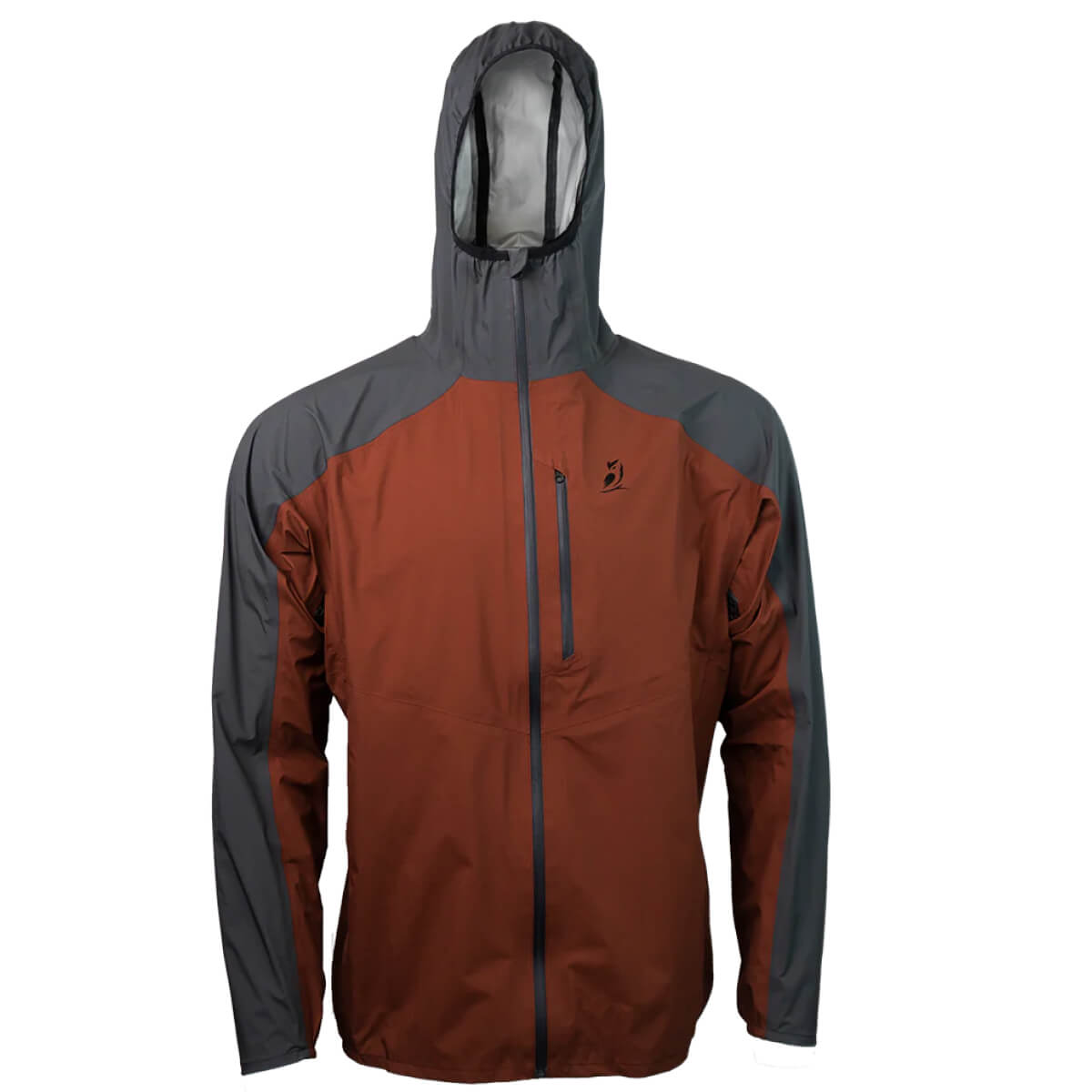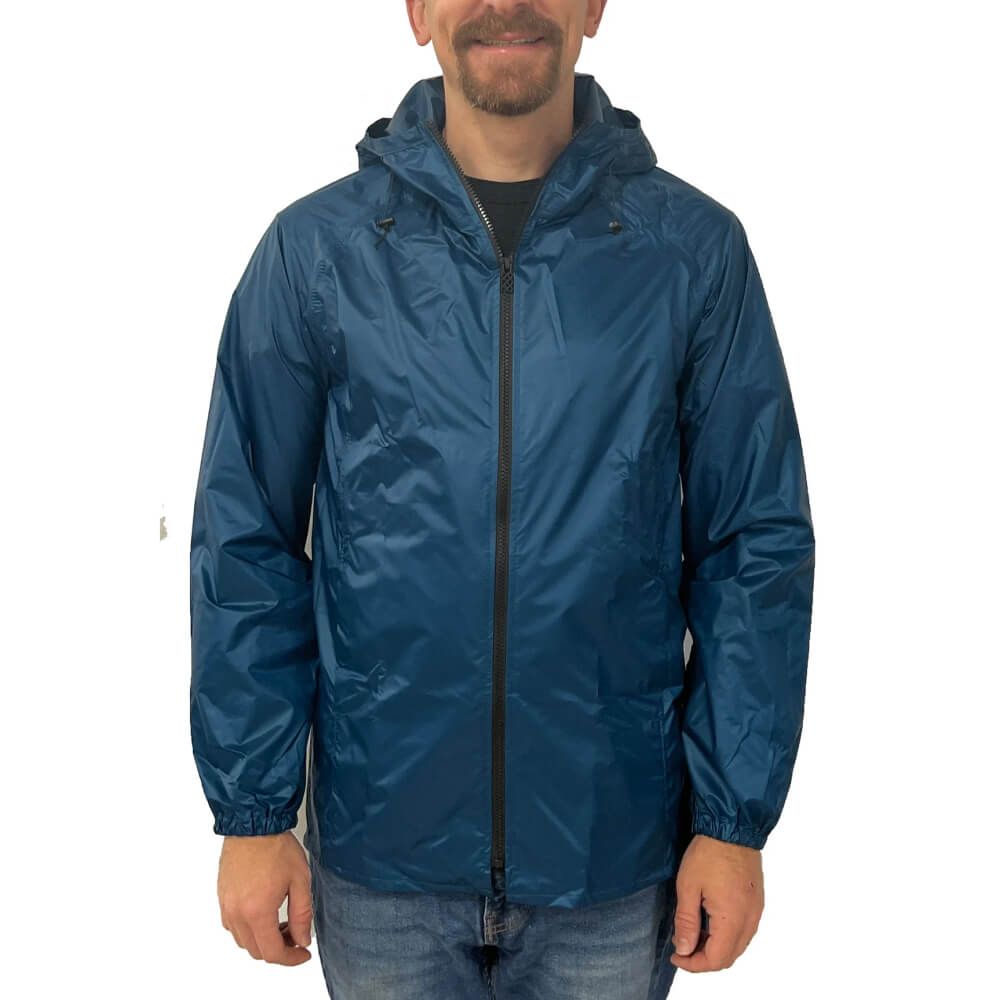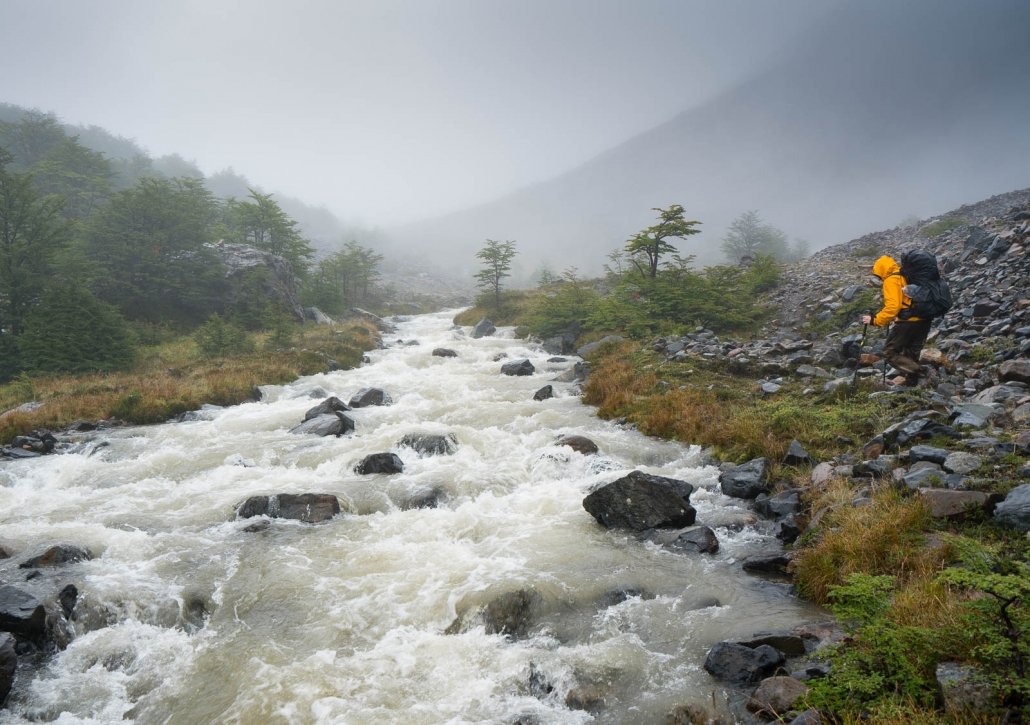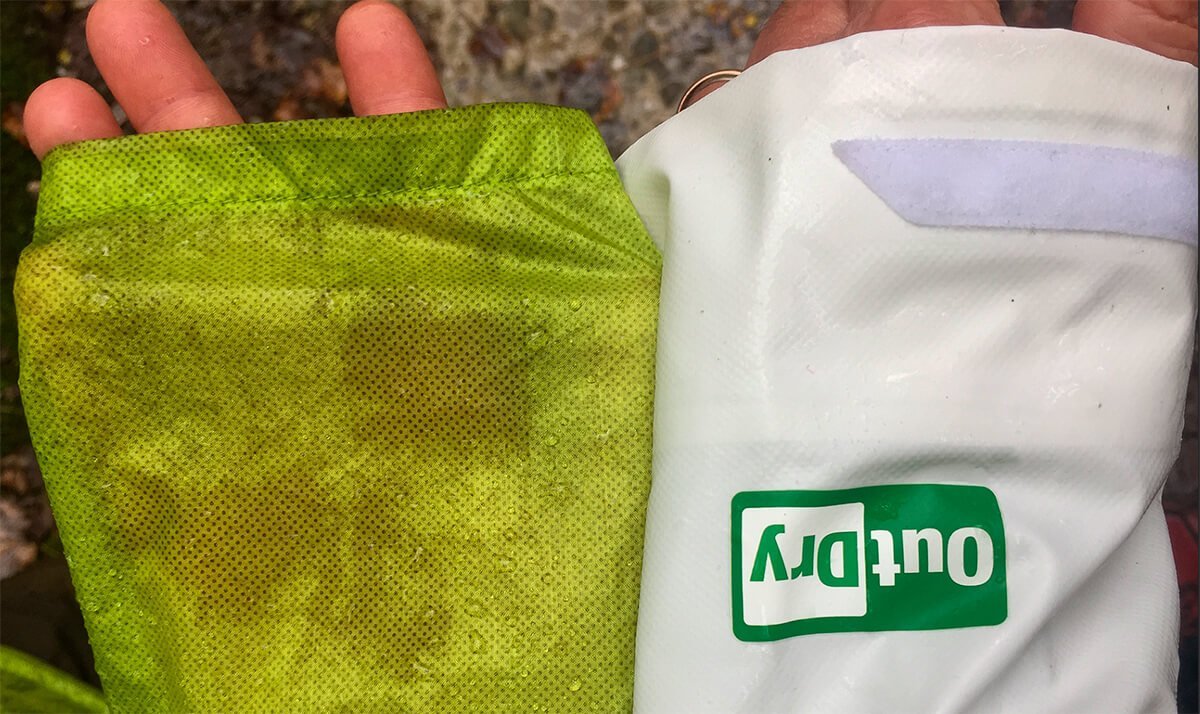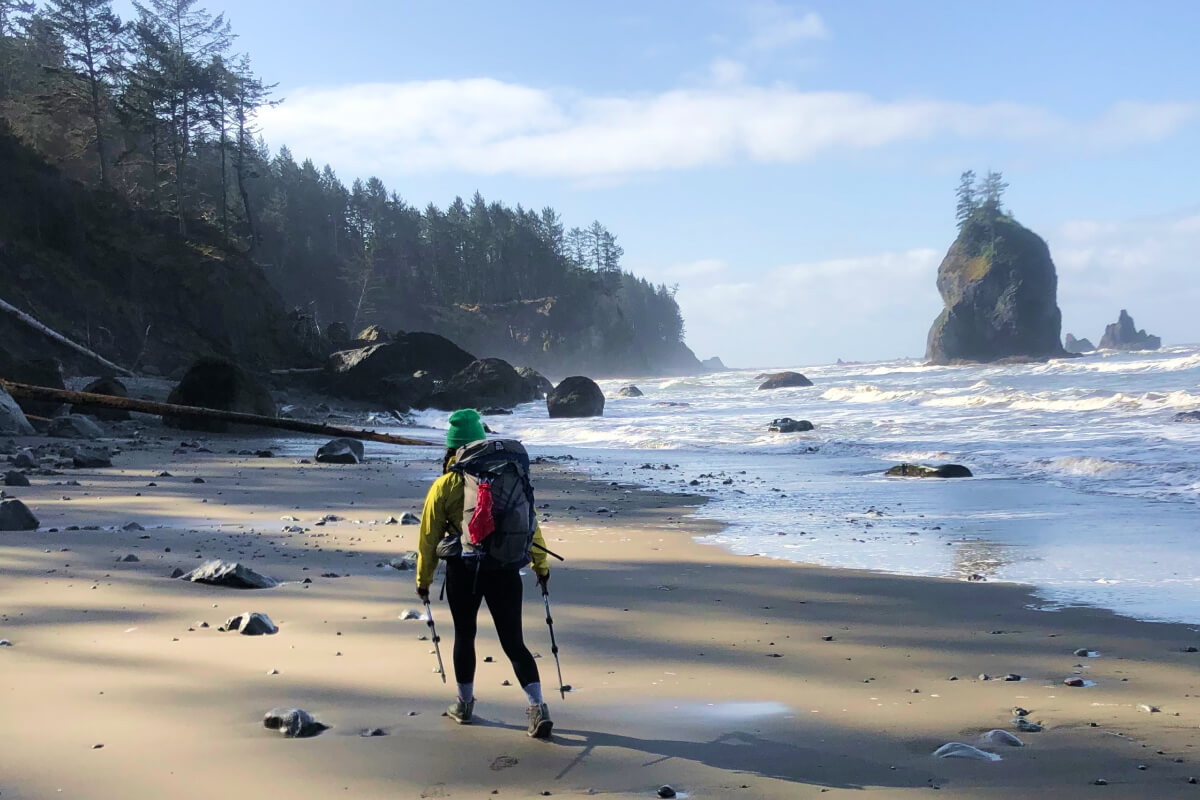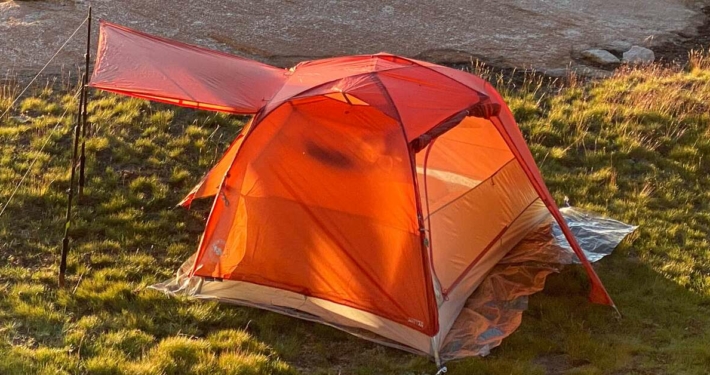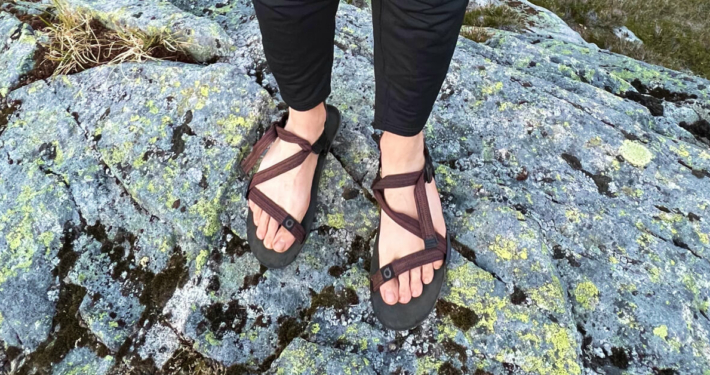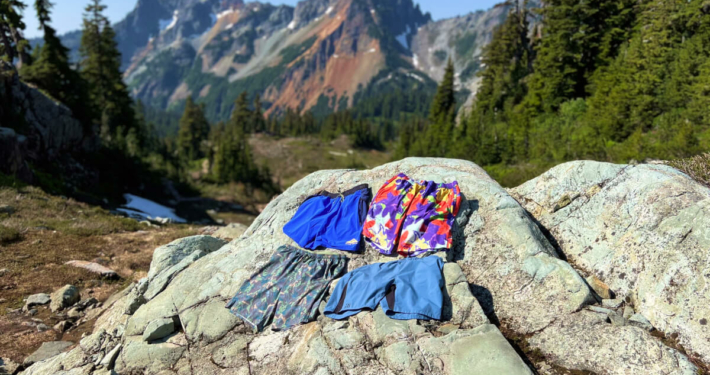Best Lightweight Rain Jacket For Hiking Ultralight 2024
Last Updated: April 7, 2024
Lightweight & Ultralight Rain Jackets for Hiking & Travel
Staying dry is critically important on the trail, which is why we’re here to recommend the very best lightweight rain jacket and ultralight rain jacket for your hiking, backpacking, and travel needs. Each model featured is overall superior to the competition in terms of weight, waterproofness, breathability, packability, user-experience, and value.
We verify the performance of each hiking rain jacket through a mixture of backcountry testing, meta-study, stats/feature comparisons, and decades of critical gear review experience. In short, you can trust this guide.
There is no such thing as a one size fits all best rain jacket. Which is best for your needs really just depends on what you prioritize. Protection? Value? Weight savings? Breathability? While each lightweight rain jacket is a capable all-purpose performer on the trail, each in turn represents a best-in-class option for specific performance priority, use-case, or budgets. Here you are sure to find your next favorite packable rain jacket.
Complete your layering system with our guides to hiking rain pants, rain kilts, fleece jackets, down jackets, windbreaker jackets, and hiking shirts. When purchasing through links on our site, we may earn an affiliate commission at no additional cost to you. Here’s why you can trust us.
Best Lightweight Rain Jacket
- Best All-Purpose: Patagonia Torrentshell 3L
- Best Value Gore-Tex: REI Co-op XeroDry GTX
- Best Lightweight Gore-Tex: Stio Exploit
- Best Protection: Arc’teryx Beta Lightweight
- Best with Stretch: Black Diamond Stormline Stretch
- Best For $100: REI Co-op Rainier
Best Ultralight Rain Jacket
- Best Ultralight: Enlightened Equipment Visp
- Best Super Ultralight: Zpacks Vertice Rain Jacket
- Best Ultralight Value: Outdoor Vitals Tushar
- Best Ultralight Budget: Outdoor Research Helium Rain
- Thru-Hiker Classic: Montbell Versalite
- Best 100% Waterproof, 0% Breathable: Lightheart Gear Rain Jacket
Hiking Rain Jacket Comparison Table
| Rain Jackets | Price ($) | Weight (oz) | Fabric Tech |
| Zpacks Vertice Rain | 299 | 5.6 | 3L Vertice |
| Outdoor Research Helium Rain | 170 | 6.3 | 2.5L Pertex |
| Enlightened Equipment Visp | 250 | 6.4 | 3L WP/B |
| Montbell Versalite | 260 | 6.4 | 2L Windstopper |
| Outdoor Vitals Tushar | 230 | 7.4 | 2.5L Toray Torain |
| LightHeart Gear Rain Jacket | 150 | 7.4 | 1L Sil/PU |
| Stio Exploit | 349 | 8.8 | 3L GTX Active |
| REI Co-op Rainier Rain | 100 | 11.3 | 2.5L HydroWall |
| BD Stormline Stretch | 180 | 11.3 | 2.5L BD.dry |
| Arc’teryx Beta Lightweight | 500 | 12.0 | 3L GTX ePE |
| REI Co-op XeroDry GTX | 179 | 12.5 | 2L GTX |
| Patagonia TorrentShell 3L | 179 | 14.1 | 3L H2No |
Best Lightweight Rain Jacket – All-Purpose
Patagonia Torrentshell 3L Jacket
We love when sustainable gear performs as well as unconstrained designs, and the Patagonia Torrentshell 3L Jacket leads the pack for rainwear (shop now). Not only is this one constructed with recycled materials, it’s also manufactured with fair trade certified sewing and produced by the only brand owned by a environmental non-profit. And what a value for just $179. Learn more in our full-length Patagonia TorrentShell 3L Review.
- Weight: 14.1 oz
- Price: $179
- Fabric: 3L H2No® ECONYL® recycled ripstop nylon
- Pros: 3-Layer. Fully-featured. Eco-friendly. Great value. Pit zips. Durable.
- Cons: Mid-tier weight.
Construction & Features
When it comes to features and performance, the Torrentshell is no slouch and a great all-purpose rain jacket. This is a fully featured design with pit zips, hand pockets, adjustable hood, hem/collar/cuff cinching, and microfleece neck liner.
The full 3-layer design (very difficult to find for under $200) includes a tricot backing to protect the interior from oil and abrasion. It also adds comfort compared to a 2L jacket by reducing the wet plastic-y, clammy feel when bare skin touches the inside of a damp jacket.
The H2NO membrane isn’t pushing performance boundaries when it comes to waterproof breathability, but it keeps you dry as well as expected, and is comparable to most other high end rain jackets.
Our only quibble is that, at 14.1 oz, it’s more mid-weight than lightweight, and it’s twice as heavy as our favorite ultralight picks. But the functionality is worth the weight.
Verdict
The pros easily outweigh that con and makes this hiking rain jacket an incredible value for $179. The Patagonia Torrentshell 3L is a well-priced, well-rounded, high performance waterproof shell that is manufactured to minimize harm to the environment, and we’re proud to recommend it here.
Best Lightweight Rain Jacket – Value Gore-Tex
REI XeroDry GTX Jacket
The REI Co-op XeroDry GTX is a very good all-purpose hiking rain jacket at an excellent price. It’s hard to find bomber Gore-Tex protection for under $200, and this one is listed at an eye popping $179. It’s just so much bang for the buck. Shop now.
- Weight: 12.5 oz
- Price: $179
- Fabric: 2L Gore-Tex Paclite, recycled polyester
- Pros: Excellent value. Gore-Tex. Sustainable
- Cons: No pit zips. Not 3-layer.
Construction & Features
The XeroDry itself is a classic 2-layer Gore-Tex hard shell with basic features including two hand pockets, a chest pocket, plus hem/cuff/hood cinching. It gets the job done well in the backcountry.
While we love it’s protection and reliability, Gore-Tex isn’t the most breathable waterproof technology and pit zips would have been a really nice add. Because it’s 2L and the interior feels a bit plastic, we recommend wearing this over long sleeves, and keeping your hand pockets open for extra ventilation.
The jacket is designed with articulation for ease of reaching and is pleasant to hike in. Plus, it comes with REI’s warranty!
Verdict
We recommend the REI Co-op XeroDry GTX as the best value pick for a lightweight hiking rain jacket, and the most affordable Gore-Tex option.
Best Lightweight Gore-Tex Rain Jacket
Stio Exploit Jacket
Finally! Stio Exploit Jacket (Shop now) is the Gore-Tex Active shell we’ve always wanted and finally found. This highly versatile and extra breathable 3L raingear is minimalist perfection in an ultralight 3-layer chassis. Read more in our full-length Stio Exploit Jacket Review.
- Weight: 8.8 oz
- Price: $349
- Fabric Tech: 3L Gore-Tex Active, recycled micro ripstop nylon, knit backer
- Pros: Ultralight. Waterproof. Most breathable type of Gore-Tex. Offset front-zip at mouth.
- Cons: No pit zips or hand pockets. Expensive.
Features
What makes the Exploit so desirable (and so expensive) is the fully seam-taped 3L Gore-Tex Active fabric. This waterproof laminate is Gore’s most breathable variety, yet still is “guaranteed to keep you dry” all the same.
What’s more, it’s a 3-layer construction, meaning the Gore-Tex liner is sandwiched between a thin outer shell of recycled micro-ripstop nylon and an inner shell of c-knit fabric. The latter protects the laminate against skin oil and abrasion, extending the life expectancy of its waterproofness.
We love the Exploit Jacket’s offset waterproof center front zipper. This prevents the zipper pull from grinding on your face when you cinch down the hood in a storm.
A single, large zippered Napolean pocket sits on the chest. It’s big enough for a phone and is lowered to situate below sternum straps but well-above a hip belt. The hem and hood both have shock cord cinch adjustment mechanisms, though the sleeves are only secured with a half-elasticized hems.
Verdict
The Stio Exploit Jacket is a phenomenal blend of minimalist design and premium fabric technology. Few jackets can boast a superior combination of waterproofness, breathability, and lightness of weight. The end result is a seriously excellent ultralight rain shell for a high-but-worthwhile asking price. A truly exceptional waterproof jacket.
Best Lightweight Rain Jacket – Protection
Arc’teryx Beta Lightweight Jacket
Formerly known as Beta LT, the revised Arc’teryx Beta Lightweight offers the same exceptional waterproof protection and features in a lighter weight and more sustainable package. This is exactly what we want for hiking into a downpour.
- Weight: 12.0 oz
- Price: $500
- Fabric: 3L Gore-Tex ePE, 40dx70d recycled nylon
- Pros: 3-Layer. New ePE Gore-Tex. Sustainable. Durable. Immaculate quality. Great waterproofness. Pit zips. Hip belt compatible pockets.
- Cons: Light-not-ultralight. Very expensive.
Construction & Features
Arc’teryx brand Gore-Tex rain jackets have always existed at the pinnacle of quality, durability, reliability, waterproofness, and expensiveness. All of which remains true in the revised Beta Lightweight series. But now you can add eco-friendliness to that list thanks to its ePE (expanded polyethylene) membrane which is PFC-free and supplemented by an FC0 DWR. AKA, the same great protection without forever chemicals. And let’s not forget about the use of recycled fabrics, bio-derived materials, bluesign approval, and fair trade certification.
The chassis is constructed with mixed 70d/40d recycled nylon. The 70d is used on the arms, shoulders, and hood to protect high wear-and-tear zones, while lighter weight 40d nylon covers the low-abrasion-zones including inner arms, and mid-to-lower torso. The interior is backed entirely with Gore C-Knit, which increases breathability, garment lifespan, and is soft and pleasant to the touch. And in totality, the entire jacket is two ounces lighter than the LT series – now 12 oz, down from 13.9.
Moving onto the features, we love everything that Beta Lightweight brings to the table (and is virtually unchanged from its LT predecessor). That is to say, you still get large pit zips, large hip-belt compatible front pockets, interior pocket, and fully adjustable hood and cuffs. Plus a lovely front zipper with teeth that never seem to get stuck.
Verdict
The Arc’teryx Beta Lightweight Jacket is proof that you get what you pay for. Incredible quality and exceptional backcountry performance, now lighter weight and more sustainable than ever before. This is a lightweight rain jacket to behold.
Best With Stretch
Black Diamond Stormline Stretch Jacket
The Black Diamond StormLine Stretch Rain Shell is movement-friendly and comfier than average thanks to its 2-way stretch waterproof/breathable fabric and overall lightweight construction.
- Weight: 11.3 oz
- Price: $180
- Fabric Tech: 2.5L BD.dry 88% nylon, 12% elastane
- Pros: Lightweight. Stretchy. Pit Zips. Good value. Highly rated.
- Cons: Light-not-ultralight. Average waterproofness/breathability.
Construction & Features
Most rain jackets fabrics are completely static, stretch-less, and generally considered to be uncomfortable. This helps extend the life of the waterproof breathable membrane – the more you stretch it, the more you damage it. But Black Diamond StormLine Stretch Jacket is different. Not only can the BD.dry membrane tolerate repeated stretches, the face fabric is comprised of 12% elastane.
The end result is a jacket that moves with you…somewhat. It’s not stretchy in the same way polyester leggings are, but it’s noticeably much comfier to move in than your average rain shell. It has what’s called 2-way stretch, which means the fabric can be stretched horizontally (the weft), but not vertically (the warp).
Aside from its stretch properties, one of the standout benefits to this jacket are that it’s incredibly highly rated by users, averaging 4.8 stars out of 5 on 155 reviews for the men’s garment at REI at time of publication. Its waterproof breathable numbers 10k/10k are perfectly acceptable, if not terribly exciting.
Features-wise, you get pit zips, which are the single most desirable add-on and drastically increase breathability. There are also dual hand pockets, and hood/hem/cuff adjustability.
Verdict
This is a great jacket to choose for trips that involve lots of reaching, such as rope ladders, scree scrambles, class III, and other hand-on hiking. What’s more, given the rave user reviews, we’re pretty confident that almost everyone likes this jacket.
Best Lightweight Rain Jacket – $100
REI Co-op Rainier Rain Jacket
The REI Co-op Rainier, updated for 2024, is the best lightweight rain jacket we know of for only $100. It check all the boxes a hiker would need, is sustainably made, and even has pit zips!
- Weight: 11.3 oz
- Price: $100
- Fabric: HydroWall 2.5L, recycled ripstop nylon
- Pros: Very Affordable. Pit zips. Sustainable. Inclusive sizing.
- Cons: Light-not-ultralight. Not 3-layer.
Construction & Features
REI is the master of basics-done-well, and the Rainier Rain Jacket exemplifies this. The 2.5L HydroWall waterproof/breathable membrane isn’t fancy, but looks, feels, and acts like most other waterproof fabrics costings 2x as much. Plus, it’s fairly quiet and texturally smooth.
For just $100, we’re surprised by well-featured this jacket is. Most importantly, it has pit zips, which is unusual at the $100 price point. Pit zips are the single most important feature to have on a rain jacket, are we’re always astounded by how many manufacturers choose to exclude them. We also note the hook-and-loop adjustable cuffs, adjustable hood/hem, dual hand pockets, and interior stash pockets.
What’s more, Rainier is super sustainable and ethically manufactured. You get Fair Trade Certified, bluesign approved, use of recycled nylons, and nonfluorinated DWR. Watch out Patagonia, REI is coming for you!
Verdict
In a world of expensive gear, it’s nice to know you can still find a killer lightweight rain jacket for only $100. And again, just for emphasis, it has pit zips!
Best Ultralight Rain Jacket
Enlightened Equipment Visp Rain Jacket
Choose the Visp Rain Jacket because it is the most breathable ultralight rain shell with an unprecedented MVTR rating of 83,000. The three layer Visp weighs just 6.4 ounces in a unisex size medium, and comes with most of the bells and whistles including pit zips for even more breathability. This is Alan’s preferred rain jacket and we know you’ll love it too! Shop now.
- Weight: 6.4 oz
- Price: $250
- Fabric: 3L WP/B, 7D ripstop nylon, tricot lining, 83k MVTR, 10k Waterproof
- Pros: Ultralight. Best-in-class breathability. Three layer. Long drape, roomy fit. Velcro cuffs.
- Cons: No pockets. Modest durability.
Construction & Feature
We can’t stress enough how impressive it is that Visp has a Moisture Vapor Transmission Rate (AKA MVTR, AKA breathability score) of 83,000. For context, most GORE-TEX varietals range from 15-30k. Adding to that are large pit zips, which dump even more heat in order to help prevent clamminess.
Visp comes with a bevy of other features, including hood and hem adjustable, Velcro cuffs, waterproof zippers, fully-taped seams, and a tricot lining. In fact, the only feature it doesn’t have are pockets, neither chest nor hand. While we generally prefer minimalism, we would have been happy with at least one chest pocket, and would happily pay a bit more in terms of weight and cost to get that. But not a huge issue.
We also nod to the fit, which is both long, and roomy to accommodate layers underneath. The Visp is a unisex design, and they state that it runs about half a size larger than men’s sizing to accommodate layers. You can easily fit this jacket over a puffy as well as moderately wide hips.
Verdict
It cannot be understated just how breathable and pleasant to wear this rain jacket is compared to other waterproof shells, and how statistically dominant it is in the marketplace in terms of weight, breathability, and value. We recommend it very highly, especially to ultralight enthusiasts and thru-hikers.
Best Super Ultralight Rain Jacket
Zpacks Vertice Rain Jacket
The Zpacks Vertice Rain Jacket is the lightest weight and second most breathable backpacking rain jacket, and it blows mainstream outdoor brand competitors out of the water in terms of performance stats (shop now). This is a huge cottage industry flex against bigger business, and we commend Zpacks on exceptional product development.
- Weight: 5.6 oz
- Price: $299
- Fabric: 3L Vertice membrane, 7D ripstop nylon
- Pros: Exceptionally ultralight and breathable. 3-layer. Pit zips.
- Cons: Thin fabric is slightly delicate. No hand pockets. Expensive.
Construction & Features
The Vertice membrane, in conjunction with the thin 7D nylon ripstop face fabric, has a whopping 56,000+ g/m2/24hr breathability rating (for reference Gore-Tex varietals range from 15-30k), second only to Enlightened Equipment Visp. And despite that, it maintains a waterproof rating of 20,000 mm H₂O via hydrostatic head testing, which is fairly typical among high performance hiking rain jackets (for reference, Gore-Tex is on the high end and scores a 28,000mm H₂O), and besting Visp by double.
And for even more breathability, you also get pit zips and the entire package weighs only 5.6 oz in a men’s medium. This is an exceptional product and one of the best ultralight backpacking rain jackets currently available.
Durability and longevity are about what you would expect with a 7D ultralight rain jacket with small adjustment hardware. It’s adequately tough for the trail, but please don’t take it bushwhacking. The ripstop nylon helps prevent damage, but just like with all ultralight products, you should handle with some degree of care.
Verdict
At $300 this one is definitely on the expensive end, but we feel it’s a reasonable ask and value proposition, considering it’s the lightest, most waterproof, and second most breathable ultralight hiking rain jacket available.
Best Value Ultralight Rain Jacket
Outdoor Vitals Tushar Rain Jacket
The Outdoor Vitals Tushar Rain Jacket (Shop now) is a rare blend of ultralight weight, value, breathability, and pit zips – an exceedingly rare combo in the world of hiking rain jackets. See more in our Outdoor Vitals Tushar Rain Jacket Review.
- Weight: 7.4 oz
- Price: $230
- Fabric: 2.5L Toray Torain 3D laminate, 2.5L micro-ripstop nylon
- Pros: Ultralight. Good value. Pit zips. Hybrid-mapped. 3D-printed interior texture.
- Cons: Unisex/men’s sizing only. Modest durability. No hood adjustment. Not 3L. Pit zips are small.
Construction & Features
We were pleasantly surprised to discover the hybrid-mapped nature of this ultralight rain jacket. That is to say, the gray-colored shoulders, upper-arms, and hood are optimized for max waterproofness with standard breathability, while the chest, back, and underarm are optimized for max breathability with standard waterproofness. Our experience thus far has shown this jacket to be effectively waterproof, and it has exceptionally burly seam-taping.
Arguably, the most important feature in a hiking rain jacket are its pit zips, and the Tushar checks that box. Though we wouldn’t have minded if these could vents were about 50% longer for max heat dumpage. Features-wise, it also has a waterproof zipper, chest pocket, elasticized cuffs. One area for improvement though would be the hood, which lacks adjustability and doesn’t have a structured bill. Wear it with a cap and you should be fine though.
Verdict
The OV Tushar is a proper lightweight rain jacket with the stats, features, pit zips, and performance to back it up. It’s well-made, minimalist, and ready to hit the trail for a very reasonable price point. We absolutely recommend the Tushar!
Best Budget Ultralight Rain Jacket
Outdoor Research Helium Rain Jacket
The OR Helium Rain is an ultralight rain jacket at a lower than expected price (shop now), perfect for light to moderate, on-again-off-again precip. Read our full length Outdoor Research Helium Rain Jacket Review.
- Weight: 6.3 oz
- Price: $170 (M’s) $180 (W’s)
- Fabric: Pertex Shield Diamond Fuse 2.5L
- Pros: Ultralight. Great value. Durable.
- Cons: No pit zips. Not 3-Layer. Moderate waterproofness.
Construction & Features
Relative to other top performing lightweight rain jackets, Helium Rain is significantly lighter weight but still gets the job done well. And relative to other ultralight jackets, it’s more durable, and less expensive, offering a better value and longer lifespan. This is a true backpacking rain jacket, and with it, you can have your cake and eat it too.
The 2.5L Pertex Shield technology with DiamondFuse yarn makes the Helium Rain Jacket very resistant to ripping and tearing, and the entire jacket punches above its weight class when it comes to durability.
However, one of the primary weight savings design elements is that there are very few features and we wouldn’t have minded pit zips. As of 2023, hand pockets were added to the W’s version along with a $10 price increase, but not men’s. As far as performance rain gear goes, this jacket exhibits breathability and waterproofness stats that are mid-tier, but not top of the heap.
The Helium is waterproof enough. It is our go-to hiking rain jacket when packing for unknown conditions in late spring through early fall (AKA most of hiking season), or when you have a forecast that calls for light to moderate rain. However, in the event that you are knowingly hiking into a storm and/or expect to wear your rain gear most of the day every day, we would recommend a heavier duty jacket.
Verdict
To conclude, this is the ultralight rain jacket we grab most in summer. We recommend it highly, and especially to gram counters and dollar savers. A great piece of ultralight kit!
Thru-Hiker Classic Ultralight Rain Jacket
Montbell Versalite Jacket
The Montbell Versalite is a trail-tested, ever popular ultralight rain jacket weighing only 6.4 oz and constructed with a Windstopper membrane (but not true Gore-tex). It has lots of features and a thoughtful design.
- Weight: 6.4
- Price: $260
- Fabric: 2L WINDSTOPPER, 10D ripstop nylon
- Pros: Ultralight. Breathable. Large pit zips. Hip belt compatible pockets. Few seams.
- Cons: 2-layer is plastic-y and crinkly. Windstopper-not-Gore-Tex. Modest durability.
Features
Versalite is constructed with an innovative “K-Mono cut pattern” that drastically reduces the number of seam lines. This in turn reduces weight, simplifies manufacturing, and reduces the number of areas that can allow water to penetrate, requiring less seam taping and having less failure points.
Interestingly, Montbell has used Windstopper instead of traditional Gore-Tex, but it seems to be plenty waterproof enough. And in conjunction with the pit zips, it’s significantly more breathable than your average lightweight rain jacket.
We love the large, hip-belt compatible pockets. It also has adjustable cuffs, hood, and hem, and is overall very well-featured for how lightweight it is.
The 10D fabric is definitely on the thin side, but roughly as durable as any other ultralight rain jacket. Our biggest knock might be the 2L construction, which means an interior surface that sounds crinkly and feels clammy and plastic-y against skin. Without the protection of backer, the interior surface is more susceptible to damage, scuffs, and body oil that decrease the waterproofness and breathability lifespan of the garment.
Verdict
Montbell Versalite is a very well-featured, beloved ultralight rain jacket that performs well across the board and is thru-hiker approved. Biggest downsides are the 2L construction, and unusual choice to use Windstopper instead of true Gore-Tex.
Most Waterproof, Least Breathable
Lightheart Gear Rain Jacket
Choose the LightHeart Gear Rain Jacket when conditions are both cold and wet because it is truly 100% waterproof and 0% breathable.
- Weight: 7.4 oz
- Price: $150
- Fabric: 20d Sil/PU coated ripstop polyester, basically a tent fly
- Pros: Truly waterproof. Ultralight. Affordable. Great value. Pit zips.
- Cons: 0% breathability. We repeat, this fabric is not breathable.
Construction & Features
Now here’s an old school ultralight rain jacket. Unlike every other model on the marketplace, LightHeart has designed their shell with what is essentially tent fly fabric, rather than waterproof/breathable membranes like Gore-Tex or Pertex. That means water rolls up and beads off, rather than soaking in and eventually wetting out.
The downside being that is has literally zero breathability. While water cannot penetrate from the outside, warm condensation air and sweat will not escape, building up and eventually soaking wearers from from the inside. As such, this jacket is best suited to conditions that are both cold and wet, and/or low exertion activities. The more likely you are to sweat, the less likely you should be to choose this jacket.
To compensate for the lack of breathability, it does have large pit zips, which you should basically leave open 100% of the time. We also love the full brim hood which offers good face coverage. You also get a pair of hand pockets, two interior pockets, and adjustable wrists and hood. The front zipper is a beautiful toothed construction that never gets stuck.
Verdict
While we don’t recommend it as your daily driver for core hiking season, the LightHeart Gear is an exceptional ultralight rain jacket to add to your quiver for cold rain and sleet.
Essential Information For Understanding Hiking Rain Jackets
By Alan Dixon
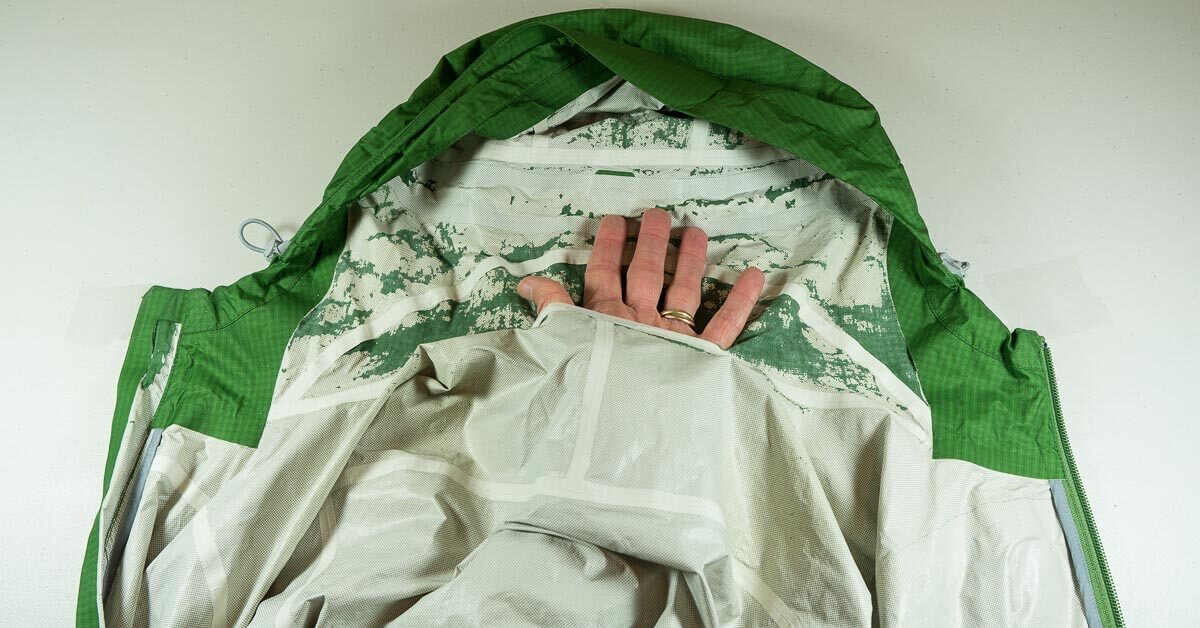
Learn, how and why rain jackets fail.
In this guide, we give you critical information you won’t get elsewhere to help you understand important features for rain jacket performance. We dive into breathability, durability, waterproof/breathable (WP/B) fabric technologies, etc. And dispel a few myths, like wetted out jackets do not breathe (they do!), etc.
- Understanding Breathability or why waterproof-breathable rain jackets get an unfair bad rap!
- How And Why Rain Jackets Fail —The Three Elements of Rain Jacket Durability
- More FAQs on rainwear — When to Consider a Soft Shell Jacket, New Gore-Tex ShakeDry Technology…
Understanding Breathability
Or why waterproof-breathable rain jackets get an unfair bad rap for not being breathable enough
The truth is, that when exercising hard, you’ll get significantly wet-from-the-inside wearing ANY wind-resistant jacket or shell—even a light supposedly “breathable” wind shirt! Put the fabric up to your mouth. If you can’t easily breathe through it then it will trap a lot of moisture, even if it is non-waterproof wind shirt.
The problem has more to do with having any wind-resistant fabric covering you than whether it’s a plain “breathable” nylon fabric, or a waterproof-breathable fabric for a rain jacket. And the difference in wetness-from-the-inside for a wind shirt vs. waterproof/breathable rain jacket may be less than you think.
Why any shell increases moisture retention
Any wind-resistant shell, hiking rain jacket or wind shirt, blocks air movement to and from your base layer and the outside environment. This has the following consequences:
- The shell retains heat, trapping warm air against your skin, and making you significantly warmer and sweat more. (In technical terms your shell creates a “boundary layer” of non-moving moist air.)
- Moist air from your skin/base-layer can’t move freely to drier and possibly cooler outside air (as it would if you were just wearing a T-shirt exposed to the outside air). This essentially traps most of your body moisture inside the shell —thus the term wet-from-the inside.
From the above, you can see why even a “breathable,” non-waterproof wind shirt can cause moisture to build up rapidly. And the harder you exercise, the worse it gets. This is supported by a lot of research by the Armed forces clothing test labs and other PhD professionals in the field. And I did some controlled testing with runs in both a wind shirt and a WP/B rain jacket. In an hour the rain jacket only accumulated 20% more sweat on my base-layer.
Rainwear gets a bad rapport
All shells retain warm moist air and tend to get an unwarranted bad rap for not being breathable. Or at least people should also start complaining about how unbreathable wind shirts are.
This is the reason I no longer carry a wind shirt. Instead, many times I use a fleece shirt/jacket for warmth in moderate wind. While nowhere near windproof, it does a decent job of blocking enough of the wind to keep me warm. The benefit is that I don’t end up getting sweaty chilled out.
Finally, when it does get cold enough and/or windy enough to chill me, I use my rain jacket as a “wind-shell.” By this point it’s cold enough that moisture accumulation in the rain jacket is not a big a deal.
When to Consider a Soft Shell Jacket
Ultralight softshell jackets, like the Patagonia Houdini, are sometimes a better choice. And if you want a packable rain jacket, you will love a windbreaker. That’s because you don’t always need a waterproof hiking rain jacket. The Houdini Air is a great choice for day hikes and trail runs where there may be a chance of rain, snow, or high winds. It is not waterproof and will not keep you dry in any excess moisture, but it’s a way more efficient, light, and affordable “just in case” layer than a fully waterproof rain jacket.
The fabric does still have a DWR finish so it will repel light moisture, and it also dries extremely quickly if it gets any sweat build-up. We don’t recommend taking the Houdini as your only rain layer on something like a thru-hike or a backpacking trip with sure rain in the forecast, but it’s a great additional layer to add for shorter trips. However, we would not recommend that as a backpacking rain jacket.
New ShakeDry Technology
The Ultralight Arc’teryx Norvan SL Jacket Uses a Brand-New Gore-Tex Tech
Shakedry technology is Gore-Tex’s most breathable and lightweight shell design. It has a persistent beading outer face, which means in rain or snow the moisture will simply run off the face of the jacket. And then, when the storm is over, simply shake out the jacket to completely dry it out. Furthermore, their Shakedry garments also include Gore-Tex stretch technology, so the Norvan jacket moves extremely well and won’t keep you constricted. Read more from Gore-Tex here.
How And Why A Lightweight Rain Jacket Fails – 3 Elements of Durability
A. Outer shell fabric durability
The ability of the rainwear’s exterior fabric to:
- Resist tearing, punctures and abrasion damage. Most ultralight rain jackets struggle with this, which is we like the durable, 6.4 oz Helium Rain Jacket so much.
- Maintain its water shedding & breathability—usually with a durable, water repellent finish DWR
Note: outer shell fabric “wet out,” the breakdown of this water shedding property, does not completely stop all breathability as is popularly believed. See more below.
B. Inner waterproof/breathable (WPB) membrane durability
The ability of a lightweight rain jacket WPB lining to maintain waterproofness AND breathability:
- The WPB membrane should remain physically intact under the wear and tear of garment use (not so easy in regular use with a backpack!).
- In particular the WPB membrane should not delaminate from the outer shell, develop cracks, etc. In this case, 3-layer construction jackets are likely more durable. That’s because their inner fabric liner protects the more delicate WPB membrane vs. the unprotected membrane of 2.5 layer jackets.
- The WPB membrane should not foul with body oils, dirt, detergent residues or other materials which will cause the WPB membrane to leak.
C. Hardware failures
- Zippers that jam, no longer mate at the bottom, or start auto-separating in the field
- Elastic adjusters on hoods, cuffs and hems of jackets. Velcro that looses its stick, adjusters/buckles that break or slip, etc.
So What Fails Most Often?
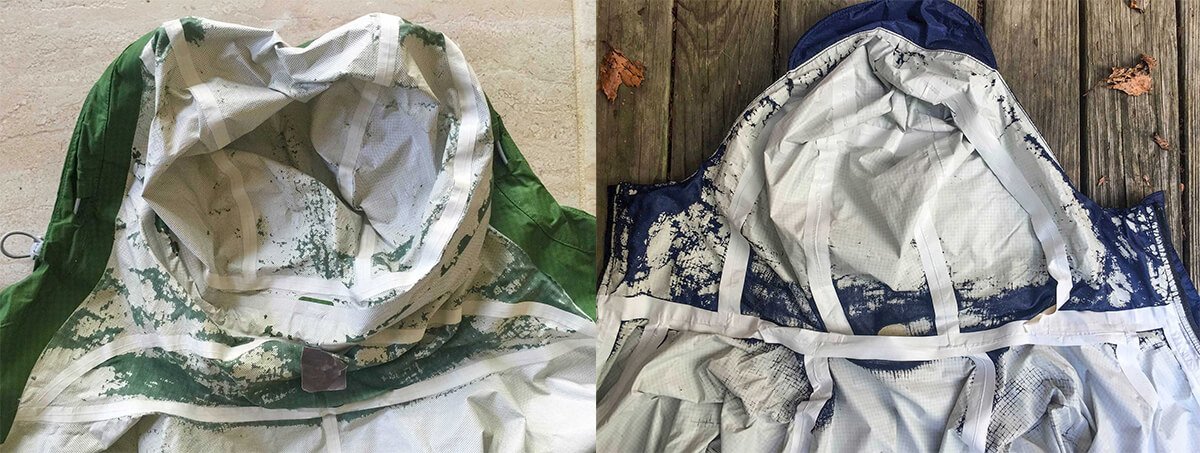
[Two high quality 2.5 layer backpacking rain jackets from big name outdoor gear companies] In my experience, membrane delamination like this in the neck and upper shoulders is the most common way that rainwear permanently fails. While this happens faster to the unprotected WPB membrane of 2.5-layer jackets like these — if you wear a 3-layer jacket long enough it too will eventually delaminate and leak. And backpackers beware: wearing a pack dramatically speeds up this delimitation process for both 2.5 and 3-layer jackets!
1) Waterproof Breathable Membrane Delamination
As the pictures above show, WPB membrane failure is likely the first and most common, the non-fixable way rain jackets fail (leak). And note that while the examples are dramatic, many small cracks, punctures, and delaminations are not obvious but will still cause your jacket to leak. This is true for 2.5 and 3-layer jackets, although a 3-layer lightweight rain jacket will usually last longer.
This is one reason why the outdoor industry still makes a big deal about 2.5 vs 3-layer construction.
Note: Many outdoor companies like Patagonia, REI, and Outdoor Research, offer good product warranties that cover zipper failures, membrane delamination, etc. This will protect your jacket as a long term investment. But if your jacket fails in the field you may have to suffer through wet until you get home and can ship it back for repair or replacement.
2) “Wet Out” (DWR failure) – Outer Shell no Longer Beading/Shedding Water
On the left is a traditional ultralight rain jacket surface treated with a DWR that has already started to fail (wet out). Large wetted-out areas will reduce the breathability of a rain jacket. In comparison, on the right is a newer, non-chemical water-shedding fabric technology. FutureLight technology from The North Face is a great example of this, though we feel it has a ways to go before taking over the industry.Wet out is another common “failure,” altho it can be fixed. Wet out happens when the durable, water repellent finish DWR no longer beads up and sheds water. The most common reason for this is the DWR finish (a chemical) wearing off after many garment washings, and/or the surface getting fouled with dirt and other compounds. While this doesn’t cause the rain jacket to leak, it does likely slow down the breathability of the jacket (see more below). This makes it easier to sweat out the inside of the jacket if you are working hard. Your DWR can be refreshed by washing the jacket and treating it with a DWR restoring wash compound and/or spray. E.g. some of these from Nikwax.
Note: While some newer fabrics like Columbia OutDry Ex Eco are inherently hydrophobic and don’t need a DWR. You will still need to keep the fabric free of dirt for the best water shedding.
Myth: A Wetted Out Rain Jacket Doesn’t Breathe
It’s a myth rainwear stops breathing once it wets out. This is according to interviews I had with 1) Jeff Mergy, the Director of the Innovation Team at Columbia Sportswear (among other things tech. guy for OutDry Ex Eco Fabric and 2) Dr. Fred Wilson PhD a long term industry scientist who worked for both GORE and eVENT on WPB fabrics.
In an interview I had with Jeff Mergy, he stated that WPB membranes are still breathable when the outer shell is wetted out but not as breathable. It is still not clearly understood how less breathable but Jeff believes it is significant. BUT he said that part of what consumers believe is “not-breathable” is often the clammy next skin feel of conventional WPB jackets. Water shedding fabrics like OutDry and FutureLight help with this by having an actual wicking fabric that feels far more comfortable next to the skin. Even when the outer shell is wetted out. [Note: other 3-layer technologies with a fabric liner should have a similar non-clammy feel.]
Related Posts

 Best Lightweight Fleece Jacket Hiking & Backpacking 2024
Best Lightweight Fleece Jacket Hiking & Backpacking 2024
